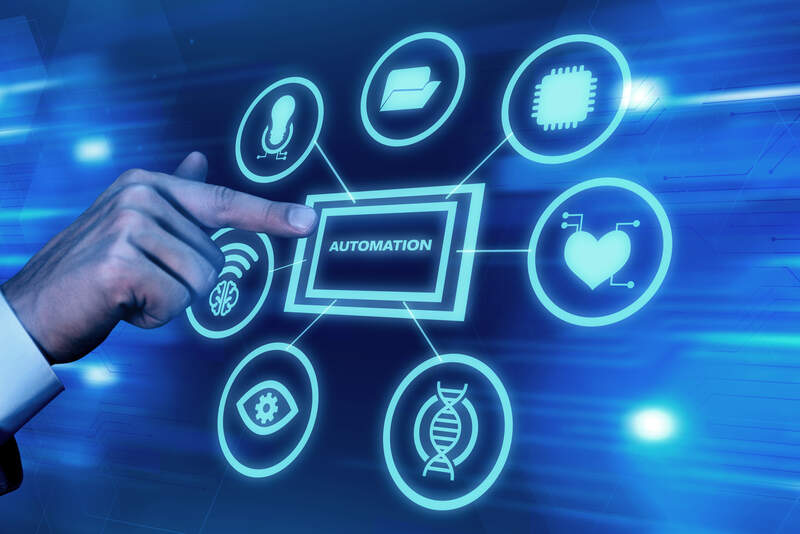What Implications Will Artificial Intelligence Have on Your Salary?
Dec 16, 2023 By Triston Martin
Artificial Intelligence (AI) is rapidly transforming the landscape of numerous industries and sectors, thereby impacting job roles and salaries. By automating repetitive tasks and generating insightful data analysis, AI can alter income structures, creating both challenges and opportunities. This article seeks to explore the potential implications of AI on your salary, considering factors such as job automation, the demand for AI-specialized roles, and the shift in skills required in the modern workplace.
Analysis of AI Adoption on Salaries
 As AI is increasingly integrated into various industries, it will inevitably affect job roles and salaries. According to a study by the World Economic Forum, AI could displace around 75 million jobs worldwide by 2022. However, this displacement is likely to be offset by the creation of new jobs in emerging fields such as data science, machine learning, and AI development. This shift in job roles and skills will also impact salary structures, as demand for AI specialists is expected to increase significantly.
As AI is increasingly integrated into various industries, it will inevitably affect job roles and salaries. According to a study by the World Economic Forum, AI could displace around 75 million jobs worldwide by 2022. However, this displacement is likely to be offset by the creation of new jobs in emerging fields such as data science, machine learning, and AI development. This shift in job roles and skills will also impact salary structures, as demand for AI specialists is expected to increase significantly.
Automation of Repetitive Tasks
One of the primary ways AI can impact salaries is through the automation of repetitive tasks. As AI technology advances, more routine jobs that do not require complex decision-making or creative thinking are likely to be automated. This could lead to a decrease in salaries for such roles, as companies will be able to complete these tasks more efficiently and at a lower cost. Employees in these roles may have to upskill or transition into other areas that require more advanced AI-related skills.
Demand for AI-Specialized Roles
On the other hand, the demand for specialized roles in AI is expected to rise significantly. With AI technology becoming more prevalent and sophisticated, the need for skilled professionals to design, develop, and maintain these systems will also increase. This demand could potentially drive up salaries in these roles due to their high demand and specialized nature.
Shift in Required Skills
As AI continues to evolve, it is also changing the skills required in the modern workplace. While technical skills related to AI will be in high demand, soft skills such as problem-solving, critical thinking, and adaptability will also become increasingly important. This shift in required skills could impact salary structures, as employees with a combination of technical and soft skills may command higher salaries.
Industries most affected by AI
Industries all over the globe are expected to feel the effect of AI, but some will experience more immediate and profound changes. These sectors could see a significant reshuffling of their workforce and compensation structures. Let's delve into some of the industries that are most likely to be affected by AI.
Health Care Industry
The health care industry is one of the most significantly affected industries by the advent of AI. AI is used to analyze patient data, predict diseases, and even assist in surgeries, thus creating a need for professionals adept at integrating AI technologies into health care practices. This demand could push salaries upwards for health care professionals with AI competencies.
Manufacturing Industry
AI is revolutionizing the manufacturing industry by improving efficiency and reducing human error. From automating repetitive tasks on assembly lines to predicting maintenance needs for machinery, AI's influence is widespread. As a result, manufacturers are seeking professionals knowledgeable in AI, potentially increasing salaries for these roles.
Retail Industry
AI is reshaping the retail industry, particularly in areas such as personalization, inventory management, and customer service. Retailers are increasingly using AI to offer personalized recommendations to customers, predict inventory needs, and automate customer service through AI chatbots. Therefore, retail professionals with AI skills could see an uptick in their salaries due to the growing demand.
Financial Services Industry
In the financial services industry, AI is being used for fraud detection, risk assessment, and customer service automation. Professionals with AI expertise in these areas are in high demand and so, the salaries in these roles could see a notable increase.
Educational Sector
AI is also making strides in the education sector, with applications ranging from personalized learning to administrative tasks automation. Educators who can integrate AI into their teaching methods, or administrators who can effectively incorporate AI into school systems, could command higher salaries due to the increasing importance of these skills.
Transportation Industry
AI has a significant impact on the transportation industry, particularly in areas such as route optimization, predictive maintenance, and autonomous vehicles. Professionals who can effectively integrate and manage these AI-based systems in transportation companies could see a substantial increase in their salaries due to the high demand for these skills.
Hospitality Industry
The hospitality industry is also leveraging AI to enhance customer service, streamline operations, and personalize guest experiences. From AI chatbots answering customer queries to predictive analytics for room inventory, AI skills are increasingly valuable in this industry. As such, hospitality professionals with a deep understanding of AI could command higher salaries.
Agriculture Sector
AI advances are making their way into the agriculture sector as well, with technologies like precision farming and automated irrigation systems enhancing productivity and sustainability. Agricultural professionals who can use AI to make data-driven decisions or manage AI-powered agricultural machinery could see a potential rise in their income.
Media and Entertainment Industry
In the media and entertainment industry, AI is used for personalized recommendations, content creation, and consumer behavior analysis. Professionals skilled in incorporating AI into these areas are in high demand, and this could drive salaries upwards in the industry.
Real Estate Industry
The real estate industry is utilizing AI for property valuations, predictive analytics in market trends, and virtual property tours. Real estate professionals with the ability to apply AI in these aspects could see an uptick in their salaries due to the growing value of these skills.
How to Prepare for the Changing Landscape?
With AI impacting industries and reshaping job roles, it is essential for individuals to stay ahead of the curve. To prepare for this changing landscape, here are some steps that individuals can take:
- Stay updated on advancements in AI technology and its applications in different industries.
- Continuously upskill and acquire knowledge in areas related to AI, such as data analysis, machine learning, and natural language processing.
- Develop soft skills such as critical thinking, problem-solving, and adaptability to complement technical AI knowledge.
- Consider obtaining certifications in areas related to AI to showcase expertise and stand out in the job market.
- Network with professionals already working in industries affected by AI to gain insights into industry trends and potential job opportunities.
Conclusion
As AI continues to advance and permeate various industries, it is crucial for individuals to stay updated and acquire the necessary skills. By doing so, individuals can position themselves as valuable assets in these evolving industries and potentially command higher salaries. The impact of AI on industries is just beginning, but by staying proactive and continuously learning, individuals can prepare themselves for a successful future in this changing landscape. So, individuals should embrace the challenges and opportunities presented by AI and equip themselves with the skills needed to thrive in this dynamic environment.

Triston Martin Jun 11, 2023
Top High Yield Savings Accounts for Business Owners
55362

Triston Martin Dec 01, 2023
Unexpected Tax Bill: How to Navigate the Storm
52657

Triston Martin Oct 13, 2022
What is carbon trade? How does it matter?
9534

Triston Martin Dec 13, 2023
A Comprehensive Guide to Redeeming Savings Bonds Effectively
92361

Susan Kelly Dec 04, 2023
What are the Banking Rights of Immigrants?
81908

Triston Martin Dec 15, 2023
Deciphering Overdraft Fees: A Comprehensive Guide to Grasping, Avoiding, and Successfully Waiving
74726

Triston Martin Dec 10, 2023
How To Handle Unauthorized/Mistaken Transactions From Checking Account
23002

Triston Martin Dec 14, 2023
Safely Closing a Checking/Savings Bank Account: A Comprehensive Guide
90564